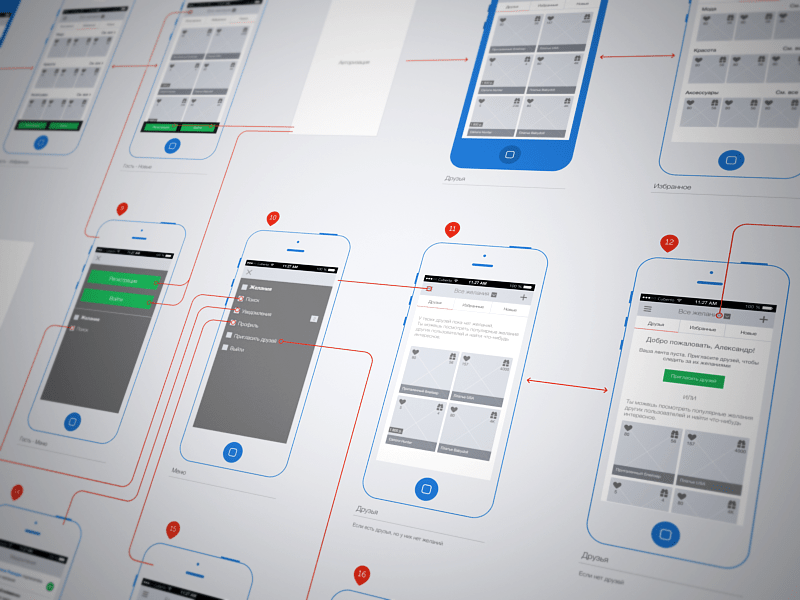The Fintech industry is an ever-evolving market. It is characterized by constant improvement and high levels of compliance.
In this area, development and implementation merge together successfully. We can confidently say that it is possible due to the implementation of DevOps in Fintech practice. It’s changing the way Fintech companies create, implement, and support software solutions.
DevOps in Fintech processes increase the effectiveness of the company’s product development periods. They help introduce new features in rapid succession in the market.
At the same time, DevOps in Fintech improves communication and coordination among multiple teams. It embeds a mindset of ongoing development.
In this article, we will try to focus on DevOps in Fintech practices. In particular, we will consider the processes of building and deploying the product, the role of DevOps in Fintech in these processes, and the quality of the product itself.
It does not matter if you are a professional within the Fintech industry or a DevOps engineer interested in both domains, this article will be illuminating.
Deep Dive into the Concept of DevOps in Fintech
DevOps in Fintech is a modern IT development practice that integrates development and operation activities. By combining them, the target is to achieve the rapid delivery of features and updates within a shorter time frame.
In the Fintech sector, DevOps in Fintech is not merely understood as a methodology. It is a belief in inter-support of previously distinguished units of software authors and systems admins.
This is where it’s all about tearing down walls. It is about creating an optimal way of working that ensures development cycles and their execution are quicker and easier. This is vital in the rapidly changing Fintech sector, where time to market can mean a lot.
Also, there is a focus on continuous improvement in the process of development. DevOps in Fintech covers every aspect of it, from coding to deployment, including build, test, monitoring, and managing the system. The end result is a better and more efficient software environment.
To sum up, if we consider DevOps in Fintech, it means bringing both the business and technical aspects through technology. It is about increasing customer satisfaction by delivering value in the shortest time possible. It is a critical factor for growth and competition in the Fintech market.
However, DevOps in Fintech presents unforeseen hurdles.
The situation is also true for the Fintech industry. Regulation and compliance are usually on the board, security becomes tougher, and solutions must come within a short time frame. These challenges can all be tackled using DevOps in Fintech.
Regulatory compliance is important in the Fintech field. The use of DevOps in Fintech practices, including automated testing and continuous integration, helps meet compliance requirements by providing checks and balances during the engineering process.
Security is also a crucial factor. With DevOps in Fintech, security is considered from the beginning. This type of engineering, also referred to as DevSecOps, helps establish security measures early on, reducing the risk of breaches.
There is also a need for innovation speed in Fintech. DevOps in Fintech allows faster iterations, shorter development cycles, and quicker market introduction of new products. This enables companies to stay relevant and respond to dynamic customer needs.
Advantages of DevOps in Fintech
DevOps in Fintech has a positive impact on Fintech practices. It simplifies operations, improves teamwork, and boosts time to market. Let’s explore these advantages further.
Firstly, the process of software development is simplified by DevOps in Fintech. It narrows the gap between development and operations, leading to efficient use of time and effort, thus shortening product lead times.
Secondly, DevOps in Fintech encourages collaboration. Silos are dismantled, and teamwork becomes more important, leading to new and innovative ideas.
Lastly, DevOps in Fintech increases the speed of product delivery. Continuous integration and deployment enable the timely release of new improvements, helping Fintech companies stay ahead of the competition.
Continuous Integration and Deployment (CI/CD)
CI/CD, an integral part of DevOps in Fintech, helps in making several iterations of code over short periods, delivering new features and faster bug fixes, improving product quality.
CI/CD also reduces the chances of failed deployments, offering greater efficiency and stability during software releases.
Automation and Efficiency
Automation is a major benefit of DevOps in Fintech. It reduces manual work, minimizing errors, and ensuring that processes are more effective and software of higher quality.
For example, automated testing identifies bugs early in development, improving the quality and effectiveness of the product.
Security and Compliance
Security and compliance are critical concerns in Fintech. DevOps in Fintech enhances both by relying on practices like DevSecOps and automated compliance checks. This ensures that security is integrated from the start, reducing the chances of breaches.
Automated compliance ensures that regulatory requirements are adhered to, reducing the risk of non-compliance penalties.
DevOps Best Practices in Fintech
For DevOps in Fintech, embracing established guidelines is key. Automation is crucial, as it reduces human error and increases process efficiency. Continuous feedback and the adoption of cloud technologies also enhance efficiency and scalability.
Conclusion: Why DevOps is Essential for Fintech Innovation
DevOps in Fintech is not a trend but an essential approach for speeding up development and delivery, reducing security risks, and fostering innovation. Fintech companies should adopt DevOps in Fintech practices to remain competitive, efficient, and capable of rapid growth.
DevOps in Fintech – A Way to Speed up the Building and the Release of a Product
The Fintech industry is an ever-evolving market. It is characterized by constant improvement and high levels of compliance.
In this area, development and implementation merge together successfully. We can confidently say that it is possible due to the implementation of DevOps in Fintech in practice. It’s changing the way Fintech companies create, implement, and support software solutions.
DevOps in Fintech processes increase the effectiveness of the Fintech company’s product development periods. They help to introduce new features in a rapid succession in the market.
At the same time, DevOps in Fintech is improving the communication and coordination among multiple teams. It’s embedding a mindset of ongoing development.
In this article, we will try to focus on DevOps in Fintech practices in the Fintech domain. In particular, we will consider the processes of building and deploying the product, the role of DevOps in Fintech in these processes, and the quality of the product itself.
It does not matter if you are a professional within the Fintech industry or if you happen to be a DevOps engineer who just happens to be keen on both domains, this article will be illuminating.
Deep Dive into the Concept of DevOps in the Context of Fintech
DevOps in Fintech is a modern IT development practice that integrates development and operation activities. By combining them, the target is to achieve the rapid delivery of features and updates within a shorter time frame.
In the Fintech sector, however, DevOps in Fintech is not merely understood as a methodology. It is a belief in inter-support of the previously distinguished units of software authors and systems admins.
This is where it’s all about tearing those walls. It is about creating an optimal way of working that ensures that development cycles and their execution are quicker and easier. This is vital in the rapidly changing Fintech sector where time to market can mean a lot.
Also, there is a focus on continuous improvement in the process of development as well. DevOps in Fintech covers every aspect of it, from coding to deployment that includes build, test, monitoring, and managing the system. The end effect is that a better and efficient software environment in the Fintech is created.
To sum up, if we consider DevOps in Fintech, it is meant to bring the business as well as its technical aspect through technology. It is about increasing the satisfaction of the customer by increasing the value delivered to them in the shortest time possible. It is a challenging factor for the growth and advancement towards the competition of the fintech market.
However, DevOps in Fintech and Fintech present unforeseen hurdles.
The situation is also true for the Fintech industry. Regulation and compliance are usually on the board, the security is rendered new and tough, and solutions: all come within a short time frame. These challenges can all be tackled using DevOps in Fintech.
Regulatory compliance is an important aspect in the field of Fintech. The use of DevOps in Fintech practices, including automated testing as well continuous integration, helps meet these compliance requirements. They accomplish this by providing checks and balances at regular intervals during the engineering process.
Aside from that, security is also a very important factor in the world of Fintech. In terms of development, with DevOps in Fintech, the security aspect is considered from the beginning. This type of engineering is also referred to as DevSecOps and it helps to establish security measures at the onset of development, thereby reducing the chances of a security breach.
Lastly, there is an acute need for innovation speed in the world of Fintech. DevOps in Fintech allows faster iterations, faster development cycles, and quicker market up of new products. This enables companies in the Fintech industry to remain relevant and respond to the dynamic needs of their customers.
Exact Advantages of DevOps Application in Fintech
In particular, DevOps in Fintech practices have a positive impact in the Fintech practice area. It assists to simplify the operations, improve teamwork, boost time to market for products. Let’s explore these advantages further.
To begin with, the process of software development is simplified by DevOps in Fintech. It narrows the gap which existed between the development and the operations timelines. It leads to efficient use of time and working efforts hence shorter lead times for products.
Secondly, collaboration is encouraged by DevOps in Fintech. Silos are dismantled and there is an understanding of the importance of working in teams. Hence, the end can attain great and even new ideas.
Lastly, DevOps in Fintech increases the speed of product delivery. New improvements can be introduced as often as one wants due to continuous integration and continuous deployment, which enable timely product release. This helps Fintech to be ahead of others.
Continuous Integration and Deployment (CI/CD)
Continuous Integration and Deployment (CI/CD) is another specialized aspect of DevOps in Fintech as well as development. These change management performs as an addition where clients and even the main consumer-department receive new advancements seamlessly. As a result, releases are achieved more quickly and efficiently than before.
CI/CD helps in making several such iterations of codes over a short period. This means that new features can be delivered to customers quickly. It also helps in making faster bug fixes, which improves the quality of the product.
Furthermore, CI/CD lowers the chances of a deployment going wrong. It offers greater efficiency by promoting neither the need for the project to install onto each and every machine. Therefore, software releases are more stable and dependable.
Automation and Efficiency
Automation is one part of a DevOps in Fintech advantage, which is applicable in Fintech. This helps to reduce the manual work and consequently the chances of making any mistakes. As a result, the processes become more effective, and the software developed is of higher standards.
For example, testing done using automation ensures that any bugs are sorted out at the very early stages of development. This helps in improving the quality of the product and in the effectiveness in the treatment process too.
Moreover, it increases the size of the resource envelope so that the paradigmal shifts and changes are better handled. Enhanced innovations and client satisfaction can result from such a situation.
Extended Security and Compliance Assurance
Security and regulations are of great concern in the Fintech business. DevOps in Fintech assists in enhancing security and compliance by relying on practices such as DevSecOps and automatic compliance.
DevSecOps ensures that security measures are included in the process of software development and delivery. This helps in ensuring that security issues are integrated like any other issue designated in the life cycle. This aids in the early arresting and correction of security violations, hence the possibility of breaches being highly eliminated.
In contrast, automated compliance addresses regulatory problems by ensuring the non-violable regulation of the software. This is very essential in the Fintech industry where non-adherence to policies attracts massive losses. Automating the compliance checks within DevOps in Fintech long-term policies helps in increasing adherence and lowering cost implications along the plate.
DevOps Best Practices for Fintech Companies
For DevOps in Fintech, it is not purely about installing more applications. It also consists of embracing established guidelines that volumes success. To begin with, Fintech organizations should go for automation for instances of unnecessary human intervention. For example, testing, deploying, and even compliance. The usage of automated tools not only reduces human error but increases efficiency processes.
Secondly, there is a lot of emphasis laid on continuous feedback. This includes suggestions and helps in the ongoing improvement of the processes. It guarantees that the DevOps in Fintech practices are still relevant and are able to offer value.
Adoption of Cloud Technologies
Cloud computing is essential in the DevOps in Fintech approach. It offers the necessary ability to scale and the agility required for continuous integration and deployment. Let’s delve into this.
Cloud platforms provide quick resource consolidation. This further means that as our Fintech company expands, its infrastructural base can also expand. This scalability is important for coping with heavy-duty workloads while retaining efficiency.
Also, cloud computing enhances the magic which lies in the automation of processes under DevOps in Fintech. This consists of processes such as testing and deployment which are executed automatically. So by moving towards the cloud, Fintech companies can get the full outputs of DevOps in Fintech.
Encouraging Team Collaboration
Teamwork is the core foundation upon which DevOps in Fintech is practiced. It has to do with the elimination of silos in the organization and supporting active belonging of the wards. This is why it needs to be there.
The benefit of working with others is that they are able to help in solving that issue. They are able to acquire different ideas and skills as a result of education. That’s how those solutions are better and improved.
In addition, a culture of collaboration enables the feedback cycle in DevOps in Fintech to be maintained. It encourages people to speak out and share information. This means processes can be checked and optimized, which helps in maintaining the effectiveness of DevOps in Fintech approaches.
Finding the Solutions: Cultural Change and the Legacy Systems
Bringing in DevOps in Fintech has its fair share of challenges. Two of the most common are legacy systems and cultural change.
Legacy systems may collide with most of the DevOps in Fintech practices and tools. They may not be capable of either automation or continuous release. Then, with proper strategy and the right tools, these problems can be fixed. It could mean upgrading the legacy systems or slowly phasing them out for better ones.
Also, the requisite attitude change for DevOps in Fintech may also be difficult. It entails how teams should change the working and communication patterns. However, this is not to say that this challenge is insurmountable if there is a strong will and appropriate measures in place. It’s about nurturing and building a culture where there is devotion, honesty, and commitment to do better.
The Future of DevOps in Fintech: Trends to Watch
Having made tremendous advancement in the niche, there are many positive trends to expect for DevOps in Fintech. Artificial Intelligence and Machine Learning also come in as positive trends. These technologies can perform many DevOps in Fintech roles without human intervention, thereby increasing efficiency and minimizing errors.
Another rising trend is how security has been adopted within DevOps in Fintech. Given that Fintech deals with a lot of sensitive information, mainly financial information, security is critical. In this case, the barriers in app development are dissolved in order to center on building secure applications in a concept referred to as DevSecOps.
A rising trend is also the adoption of cloud-native technologies. Kubernetes Docker and other tools make it easier to scale and change as required—so crucial for the Fintech company.
Conclusion: Why DevOps is Essential for Fintech Innovation
It is safe to say that DevOps in Fintech is not a new fad in the Fintech domain. Instead, it is one of the best approaches to speed up development and delivery, reduce security risks, and bring in new ideas. Thanks to the better collaboration and increased process automation, Fintech companies can expedite their product delivery and release high-quality ones in a very short time.
Additionally, DevOps in Fintech principles assist in responding appropriately to changes in the ever-dynamized global business environment. They can incorporate and upgrade their systems and features faster than the competition and feedback from their customers.
In conclusion, we believe that Fintech companies should acquire DevOps in Fintech practices. It is not optional. It propels innovation, leading to efficiency and growth in the fast-changing world of Fintech.
Wildnet Technologies is a champion in the software development industry with successful development of 849+ mobile apps and 1150+ website development for more than 4100 clients.
We do this via our Software Consulting services and Design & Development services!
If you would like to know more,
- Latest DevOps Trends to watch out for
- Cloud-Native Applications: The Future of Software Development
- Why Microservices Architecture is used for Software Development?
- Wildnet Technologies: Your One Stop Digital Partner
- 2024 Hiring Trends: Hire Dedicated Developers vs. Traditional Hires
- How to Build a Mobile App for Your Company? 9 Hacks of 2024.
FAQ
Ques1. What is DevOps in fintech?
DevOps in fintech refers to the practice of integrating development and operations teams to streamline software development, deployment, and maintenance in financial services.
Ques2. How does DevOps benefit fintech companies?
DevOps enhances agility, improves collaboration, speeds up time-to-market, and ensures reliable, secure, and scalable financial applications.
Ques3. What challenges does DevOps solve in fintech?
DevOps addresses challenges like slow deployment cycles, security vulnerabilities, and the need for continuous compliance in rapidly changing financial environments.
Ques4. Is DevOps secure enough for fintech applications?
Yes, DevOps incorporates practices like automated testing, continuous monitoring, and security integration (DevSecOps) to ensure compliance with industry standards.
Ques5. How does DevOps improve compliance in fintech?
DevOps helps automate compliance checks, maintain security protocols, and ensure that financial applications meet regulatory requirements like PCI DSS and GDPR.







